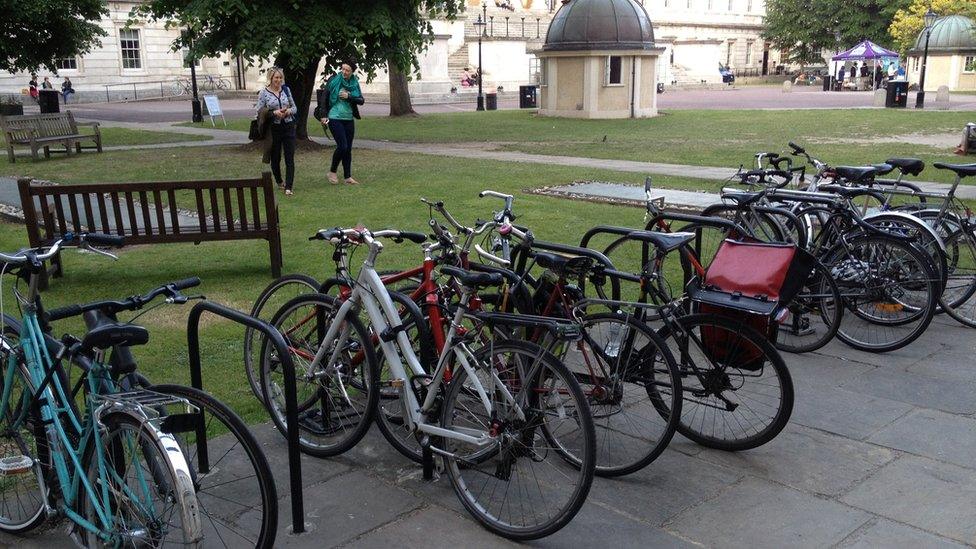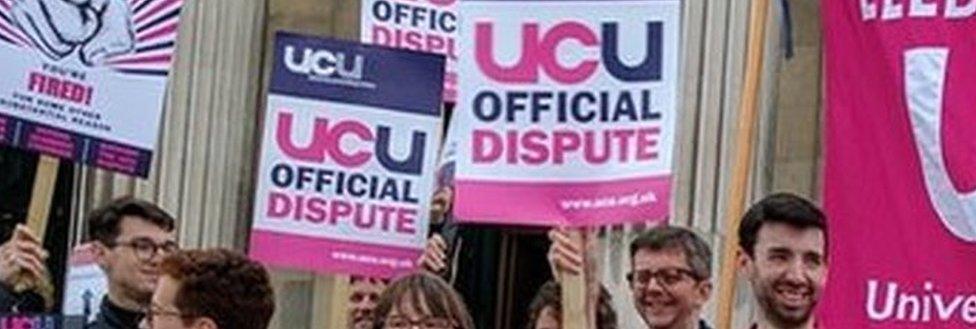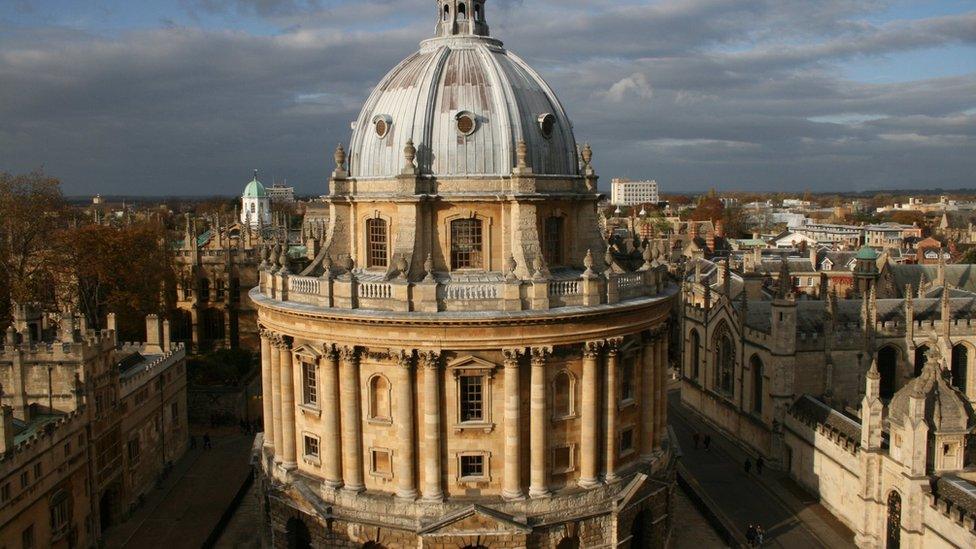Universities face 14 days of strike action over pensions
- Published

If talks fail, some universities could face strike action next month
Top universities face 14 days of strike action, starting next month, if a row over planned changes to staff pensions is not resolved.
Overall, 61 universities could be affected after members of the University and College Union voted in favour of industrial action.
Staff fear the changes could cost an average lecturer £200,000 over the course of their retirement.
The umbrella group Universities UK called the ballot result disappointing.
Last-ditch talks are due to be held on Tuesday and if they fail, the union says:
strikes will begin on 22 February with a two-day walkout
strikes could escalate to blocks of up to five days in future weeks
union members will work to contract, refusing to cover classes, do voluntary work or reschedule classes lost on strike days
Pension cuts
Staff are angry at plans to change the Universities Superannuation Scheme from a defined benefit scheme, where they would have a guaranteed income in retirement - to a defined contribution scheme, where their pensions would be subject to changes in the stock market.
UCU general secretary Sally Hunt said: "Universities will be hit with levels of strike action not seen before on UK campuses if a deal cannot be done over the future of USS pensions."
The union says it would be happy for talks to be extended to try to reach a deal.
Staff at 68 universities are members of the scheme which last year was reported to have a £17.5bn deficit - though the UCU says this figure is too pessimistic and artificially undervalues the scheme.
Of these universities, 61 voted overwhelmingly in favour of action, with 88% in favour of strikes and 93% in favour of action short of a strike, with an overall turnout of 58%.
Oxford, Cambridge, Imperial College London, UCL, Edinburgh, Glasgow, Manchester and York are among the universities affected.
At seven institutions the turnout was below the 50% required by law for a ballot to be valid.

Analysis from BBC education editor Branwen Jeffreys
This vote puts lecturers in conflict with fee-paying students, and their parents, anxious about the future.
Students are likely to feel the impact, with not only lectures but assessment of their degree coursework potentially being affected.
And the strength of the ballot sets the scene for maximum disruption.
It suggests the gulf between universities and the union may be too great to bridge at the final talks on Tuesday.
But this ballot is significant for another reason too: it is less than a year since the government passed a law to make strike action in public services harder by setting a minimum turnout threshold of 50% and requiring a majority for strike action.
By balloting separately in each one of the 68 older universities, the UCU has managed to get over the line in 61 of them and other public sector unions will be watching with interest.


A Universities UK spokeswoman said a solution to "significant funding challenges" facing the scheme needed to be found.
"We should be under no illusion, this is not a problem that will go away if ignored.
"Without reform now, universities will likely be forced to divert funding allocated from research and teaching to fill a pensions funding gap.
"The option of no reform is a dangerous gamble. It is a risk that employers cannot take."
The UUK spokeswoman urged staff to consider carefully the possible impact of disruptive strike action on students.
National Union of Students president Shakira Martin backed more talks.
"It is in the interests of both staff and students that we have a university sector in which staff are treated and remunerated fairly," she said.
Staff at institutions which became universities after 1992 are members of a separate pension scheme which is unaffected by the proposed changes.
- Published29 July 2017
